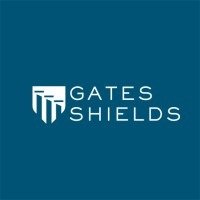Best Foreclosure Lawyers in Liberty
Share your needs with us, get contacted by law firms.
Free. Takes 2 min.
Free Guide to Hiring a Real Estate Lawyer
List of the best lawyers in Liberty, United States
About Foreclosure Law in Liberty, United States
Foreclosure law in Liberty, U.S., like all U.S. jurisdictions, refers to the legal procedures by which a mortgaged property is sold, typically as a result of the borrower's failure to make mortgage payments. When a borrower fails to pay their mortgage payments, the lender, usually a bank, can start foreclosure proceedings to recover their money. This generally involves selling the property through a public auction. The laws and procedures for foreclosure may vary somewhat from state to state, whereby Liberty is not any different.
Why You May Need a Lawyer
You may need a lawyer when faced with foreclosure for a number of reasons. If you're uncertain about your rights, a foreclosure attorney can provide valuable advice and guidance. They can explain the foreclosure process, your rights and obligations, possible defenses, and alternatives to foreclosure. If you decide to fight the foreclosure, a lawyer can represent you in court. A lawyer might also be able to help you negotiate a workout or loan modification with your lender.
Local Laws Overview
Regional foreclosure laws in Liberty and throughout the U.S. can influence the foreclosure process timeline, the notice requirements, whether you might have the right to reinstate your loan before the foreclosure sale, and whether you might be liable for a deficiency judgment after the foreclosure. Liberty has a mandatory grace period for homeowners, known as a "pre-foreclosure period", which is often significantly longer than most jurisdictions to prevent unfair swift removal of homeowners from their homes.
Frequently Asked Questions
What is a foreclosure?
Foreclosure is a legal process where a lender attempts to recover the loan balance from a borrower who has stopped making payments by forcing the sale of the asset used as the collateral for the loan.
Will I automatically lose my home if I miss a few mortgage payments?
Not necessarily. If you miss a few mortgage payments, your lender will probably contact you to try to work out a payment plan. If that doesn't work, they may eventually start a foreclosure. But you usually have the right to stop the foreclosure by catching up on the missed payments, plus fees and costs, up to a certain point before the foreclosure sale.
How can a lawyer help me in a foreclosure?
A lawyer can represent you in court if you decide to contest the foreclosure, help you apply for a loan modification, or advise you on other options like a short sale or possible bankruptcy strategies.
Can I get my house back after a foreclosure?
In some U.S. states, you can redeem (repurchase) your home within a certain period of time after the foreclosure. However, to do this, you usually would have to pay the total foreclosure sale price, plus other costs.
What is a deficiency judgment?
A deficiency judgment is an order by a court making you personally responsible for the shortfall after your home has been sold at a foreclosure sale. However, not all states allow deficiency judgments after foreclosure.
Additional Resources
If you're facing foreclosure, some useful resources might include legal aid services (which might be able to provide free or low-cost legal advice), housing counselors, and nonprofit housing counseling agencies. For Liberty, consult the local branch of the U.S. Department of Housing and Urban Development (HUD) for additional resources and advice.
Next Steps
If you believe you need legal assistance with a foreclosure matter, you should consult with an attorney who specializes in foreclosure law. Prepare for the consultation by gathering all relevant documents, including your mortgage documents, any communications from your lender, your payment records, and any notices you have received about the foreclosure. Write down any questions you have, so you can make the best use of your time with the attorney.
Lawzana helps you find the best lawyers and law firms in Liberty through a curated and pre-screened list of qualified legal professionals. Our platform offers rankings and detailed profiles of attorneys and law firms, allowing you to compare based on practice areas, including Foreclosure, experience, and client feedback.
Each profile includes a description of the firm's areas of practice, client reviews, team members and partners, year of establishment, spoken languages, office locations, contact information, social media presence, and any published articles or resources. Most firms on our platform speak English and are experienced in both local and international legal matters.
Get a quote from top-rated law firms in Liberty, United States — quickly, securely, and without unnecessary hassle.
Disclaimer:
The information provided on this page is for general informational purposes only and does not constitute legal advice. While we strive to ensure the accuracy and relevance of the content, legal information may change over time, and interpretations of the law can vary. You should always consult with a qualified legal professional for advice specific to your situation.
We disclaim all liability for actions taken or not taken based on the content of this page. If you believe any information is incorrect or outdated, please contact us, and we will review and update it where appropriate.








